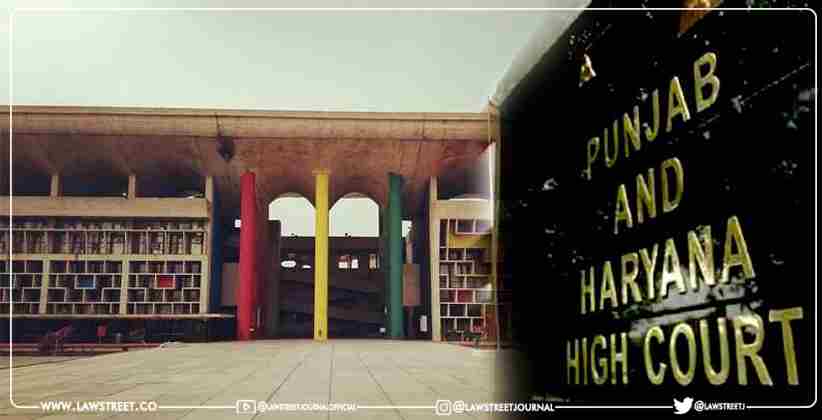Chandigarh : A recent judgement of the Punjab and Haryana High Court protecting the press has been taking rounds among the legal fraternity for all the right reasons. In the judgement, the High Court made several pertinent observations on how journalism is the fourth pillar of the democracy. And that, honest reporters require the protection of the Court while trying to bring the truth to the public.
While stating that journalism as civilisations mirror and investigative journalism its X-ray, the High Court quashed the summons and all subsequent proceedings in a criminal defamation case filed against Indian Express Resident Editor and Deputy Resident Editor.
Heres what the led to the filing of the case and what exactly what the Court said.
What was the case about?
A complaint was registered by an IPS officer after a news article alleging bribery and enforcement of police protection recommendations was published by the Indian Express. The complainant/respondent alleged that he is an IPS Officer of the 1997 batch and belongs to the Haryana cadre. He has been an honest officer, performing his duties with exemplary devotion and sincerity. At the time of the alleged defamation and the filing of the complaint, he claimed to be posted as Additional Director General of Police (CID), Haryana and asserted that a person of the highest integrity is posted on such a sensitive post as CID Chief of the State. The complainant further stated that he held a high reputation for honesty and integrity; for these reasons, he has earned respect in society, among his colleagues, and the State.
The Trial Court found prima facie evidence and issued summons even though the newspapers editors (petitioners) raised objections pertaining to jurisdiction and lack of defamation. The complainant presented evidence refuting the claims.
Challenging this, Manraj Grewal (then Deputy News Editor The Indian Express, Chandigarh), Vipin Pubby (then Editor The Indian Express, Chandigarh), Swatantra Saxena (Ex-Special Correspondent, Dainik Tribune) and Barjinder Singh Hamdard (Managing Editor of Daily Ajit and Ajit Samachar) moved the High Court. While arguing, they asserted that the news article was published in good faith in the public interest and based on information provided by CBI officials. The journalist had not only interacted with the complainant but also mentioned his viewpoint, it was added.
The respondent-complainant opposed the petition stating that it was the duty of the petitioner to verify the correctness of the news, and without doing so, he let the news printed and published in Indian Express, which caused irreparable loss/damage to his reputation and petitioner is liable to be prosecuted and punished under Sections 499 and 500 IPC.
No offence of defamation: HC
Justice Anoop Chitkara opined that the reporter and the newspaper did their jobs without committing any offense under section 499 IPC because they exercised restraints, and the news had the inbuilt safeguards, due care and caution, and reasonableness in the reported news.
The reporter, Varun Chaddha, and the publisher, Indian Express, acted within the parameters of prudency and reasonableness, and whatever they wrote, they were entitled to publish under Articles 19 and 21 of the Constitution of India.
According to the court, a complete reading of the news revealed the complainants rebuttal, his version, the version of the police. So, the publishing of the news was done in good faith. Also, discharge of their functions in a democracy is important and if restrictions are created to publish such news, it would be just like killing a mockingbird, the Court poetically observed.
Noting that the news item was a product of investigative journalism, the court said that the complainant nowhere stated that his version was incorrectly mentioned or that the journalist had withheld its material aspects.
The complainant did not plead in the complaint or establish in his testimony in the preliminary evidence any reasons or objectives for any oblique motive, malice, ill-will, mala fide intention of the petitioner, or intention to defame him. There is a conspicuous silence about it in the complaint, the statement before the court, and the reply filed to this petition.
On these grounds, the court said that the Indian Express, its reporter, and its Editors are entitled to benefit under the first and the ninth exceptions to S. 499 IPC. And, since the petitioner discharged his primary burden by demonstrating the contents of the news report, he is entitled to the benefit of the first and ninth exception of S. 499 IPC.
What more can be expected from a journalist? HC asks
The Court noted that all the ethical standards were adhered to by the reporter and editors before publishing the article. Apart from seeking the truth and distorting facts, the journalist cross-checked the information in the present case.
Before the journalist wrote the news, he took the complaints view into account and mentioned it in the news item, which shows that he adhered to the ethical standards of reasonableness and impartiality, which are key to journalism. One of the foundational responsibilities of a journalist is to seek the truth and report it with caution while not distorting or manipulating any facts. The respective journalist cross-checked the information, ascertained it, and explicitly mentioned the complainants version to rule out whether the facts were true or mere concocted lies or rumors.
This crosschecking and accurate reporting of the complainants version demonstrates the journalists sense of responsibility and decency while prudently discharging his duties, the Court highlighted.
The reporting itself proves by a preponderance of probability of due care and caution, and there is no reason why it should not be accepted as the discharging of their burden by the petitioner under S. 106 of the Indian Evidence Act, 1872.
Brave journalists face various hurdles, constitutional courts must enable them to publish news without fear of harmful consequences: HC
In its rather detailed judgement, the Court said that journalism is the fourth pillar of any Democracy. As a journalist, the reporters sacrosanct duty is loyalty towards the citizenry.
They serve as independent monitors of power, reporting information for public good and safety, addressing any problems or lacunae in the public system for its effective functioning and immediate redressal.
Further, it was observed that these journalists often face pressures either from political parties and government agencies. So, they require the constitutional courts protection.
In the fearless pursuit of their duties to uncover the truth and report such facts to the masses through media, these brave journalists do face various hurdles, e.g., pressures from influential parties, groups, or government agencies etc. To ensure honest and correct reporting of actual events, such journalists require the protection of courts, especially constitutional courts, to enable them to publish news without fear of harmful consequences. Thus, all courts must be more vigilant and proactive while safeguarding the interests of such courageous humans.

![Punjab and Haryana High Court judgement protecting press An explainer [Read Order]](/secure/uploads/2024/01/lj_7975_9f89e75f-cf87-4400-97e9-3a4bdb6caf8f.jpg)






![Police protection to fund manager alleging threat from Kirron Kher & aide: Punjab & Haryana HC [Read Order]](/secure/uploads/2023/12/lj_9007_Police_Kirron_Kher.jpg)
![Most interested witness being the father of deceased, SC upholds acquittal of 6 accused for murder [Read Judgment]](/secure/uploads/2023/12/lj_9904_df2c02a2-d8c5-4dd6-8b58-a59e17b8635b.jpg)
![Supreme Court Collegium approves new Chief Justices for five key High Courts in India [Read Recommendations]](/secure/uploads/2023/12/lj_8000_380d1135-6f3a-4988-a00a-4d5cd5901815.jpg)






